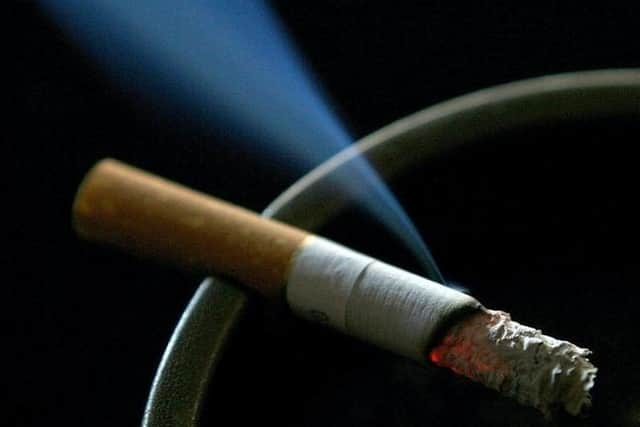Pilot scheme offering 'shopping vouchers' helps dozen of pregnant women in Hertfordshire to try to quit smoking
and live on Freeview channel 276
A pilot scheme in Hertfordshire which offers pregnant women up to £300 in shopping vouchers as an incentive to give up smoking has been helping dozens try to kick the habit.
The £49,500 scheme was launched by Hertfordshire County Council in January last year, and pregnant women who agreed to set a quit date would initially receive £50 in vouchers.
Advertisement
Hide AdAdvertisement
Hide AdIf they could prove they had successfully stopped after four weeks – by taking a carbon monoxide monitoring test – they would qualify for a further £50 of vouchers with £100 worth after 12 weeks and 34 weeks. The vouchers can be used to buy a variety of things including food, baby clothing and baby equipment for example.


As part of the consent to take part, the women are required to sign a disclosure that vouchers will not be used for items such as tobacco and alcohol.
Members of the council’s Public Health and Prevention Cabinet Panel heard on Thursday (February 11) a report from the council’s health improvement manager Emily Clarke.
The scheme is run by the Hertfordshire Health Improvement Service and is aimed at 300 of the most vulnerable women who smoke throughout their pregnancy.
Advertisement
Hide AdAdvertisement
Hide AdDuring a presentation to the panel, Mrs Clarke explained that the women were offered intensive support from a trained stop smoking specialist, regular carbon monoxide testing and offered vouchers at four key points; setting a quit date, four week stop, 12 week stop and 36 week gestation.
Only women are referred before 24 weeks of their pregnancy are eligible. Carbon monoxide testing ran from January until March 13 when it was stopped due to the Covid-19 pandemic.
Between January 1 and December 31 last year there were 522 referrals with 282 accepting support equating to 54 per cent. This was a rise from 51 per cent in 2019.
The data showed that 107 pregnant women quit smoking for at least four weeks post quit date. This compared to 58 in 2019.
Advertisement
Hide AdAdvertisement
Hide AdWith the women who were eligible for financial incentives, 92 quit at four weeks.
A total of 67 women remained smoke free at 12 weeks. Data for weeks 34 to 36 gestation will be shared at a later date.
The aim is to reach 180 women who quit smoking at four weeks, with the number currently standing at 92.
The council set aside the funding for the 15 month trial which is due to run until the end of March. A full evaluation will take place this year to inform future service development for pregnant women who smoke.
Advertisement
Hide AdAdvertisement
Hide AdCouncillor Susie Gordon said: “Thank you for an inspiring set of figures. It does look great and particularly because, this time, you did not have the carbon monoxide monitor, the results are seemingly are actually even greater than we see on the paperwork at the moment.
"Because with the carbon monoxide stimulus and enthusiasm for them, you know, you may even have better results.
“The offer of the financial incentive of £300 seemingly seems quite a lot which is really something that will inspire people I hope to continue as obviously does happen.
"I am assuming that when the report finally comes out there will be some aspect of monitoring the fact that although the investment was £300, that the health benefits and the savings are greater than that.”
Advertisement
Hide AdAdvertisement
Hide AdMrs Clarke said: “We can include some of that as much as possible in the final report. And I will absolutely make some comments that we do so.”
Cllr Gordon replied: “I think that's important for take up and continuing on from the pilot. This actually saves us money so let’s please continue.”
*A separate report to the panel about the HHIS Stop Smoking Services revealed a significant rise in four week quits with 114 more than last year.
In 2020/21 there were 1,606 four week quits compared to 1,492 for the previous year.
The report stated the Covid-19 pandemic provided ‘a unique opportunity to capitalise on smoker’s motivation to change behaviour with unavoidable media coverage about the increased risks to health’.